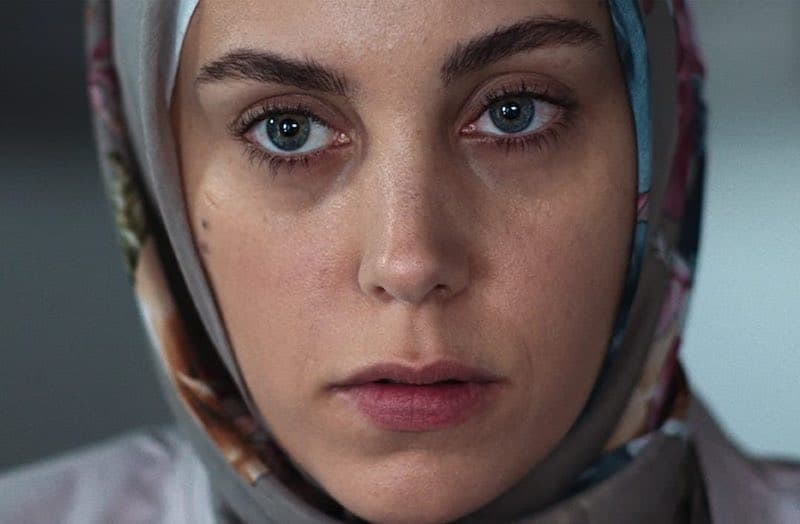Ethos (Bir Başkadır) is an 8 part series from Turkey, streaming on Netflix. It’s the story of several interconnected people from various walks of life who live in Istanbul. It’s partly a love song to Turkey and the Turkish people, and partly a very good story with fascinating characters.
Ethos (Bir Başkadır) begins and ends with Meryem (Öykü Karayel). She lives in a poor home and works as a cleaning woman. As her story unfolds it expands to include her family, her religious elder and his family, two psychiatrists, a man she cleans for, a television star and others.
Superficially, there’s a good deal of class conflict. Some of the more Westernized women regard the women who still cover their heads as ignorant and unenlightened. But under it all runs a wide river of depression and pain that arises from people not expressing their true selves, their true feelings.
The series features an excellent cast who all have interesting, complex, and flawed people to play. An underlying theme with all of them is repressed emotion.

Meryem lives with her brother Yasin (Fatih Artman), his debilitatingly depressed wife Ruhiye (Funda Eryigit), and their two kids.
Nothing is actually spelled out in words in this series. We infer, we read between the lines. We don’t know for sure what’s bothering Ruhiye until well into the story. Emotions like rage, love, trauma, or sexual desire are implied but not shown.
There are family squabbles and plenty of arguments. Men can be mad at women, but women cannot be angry at men.
It’s up to Hilmi (Gokhan Yikilkan) an awkward, book-minded admirer of Meryem’s, to bring up Jung’s theories on the shadow self. He explicates some of the ideas that underlie the themes in the series.

Meryem visits the psychiatrist Peri (Defne Kayalar). Peri has her own therapist, Gülbin (Tülin Özen). These two professional women have interesting lives and are far from perfect.
In addition to the therapist, Meryem also seeks advice from the religious elder Ali Sadi (Settar Tanriögen). Meryem’s brother also looks to the elder for help and advice.

Ali Sadi has a closeted college age daughter, Hayrunnisa (Bige Önal). Hayrunnisa and her secret girl friend have their own drama going with Meryem’s brother that is unrelated to the elder.
The series features an excellent cast who all have interesting, complex, and flawed people to play.
There’s a lot of time spent loving Turkey, its culture, the people’s ways. We see everything from expensive high rise apartments to small roughly built homes. Sometimes the camera stops and looks at the city, the countryside. The viewer is asked to soak in the sights while music plays. The trees, the rocks, the light, the shadows, the fog – all of it ties in with the story but not in obvious ways.
Speaking of music, after several episodes there’s a musical performance from a singer. I couldn’t figure out why it was there other than as part of the “isn’t Turkey special” vibe of the entire series. Maybe someone who knows more about Turkish TV than I do can explain why these bits were tacked on.
The series was written and directed by Berkun Oya.

Here’s the trailer with English dubbed. I urge you to watch it in Turkish if you can deal with subtitles. It’s much better that way.
Do you think you’ll give Ethos (Bir Başkadır) a try?

Leave a Reply